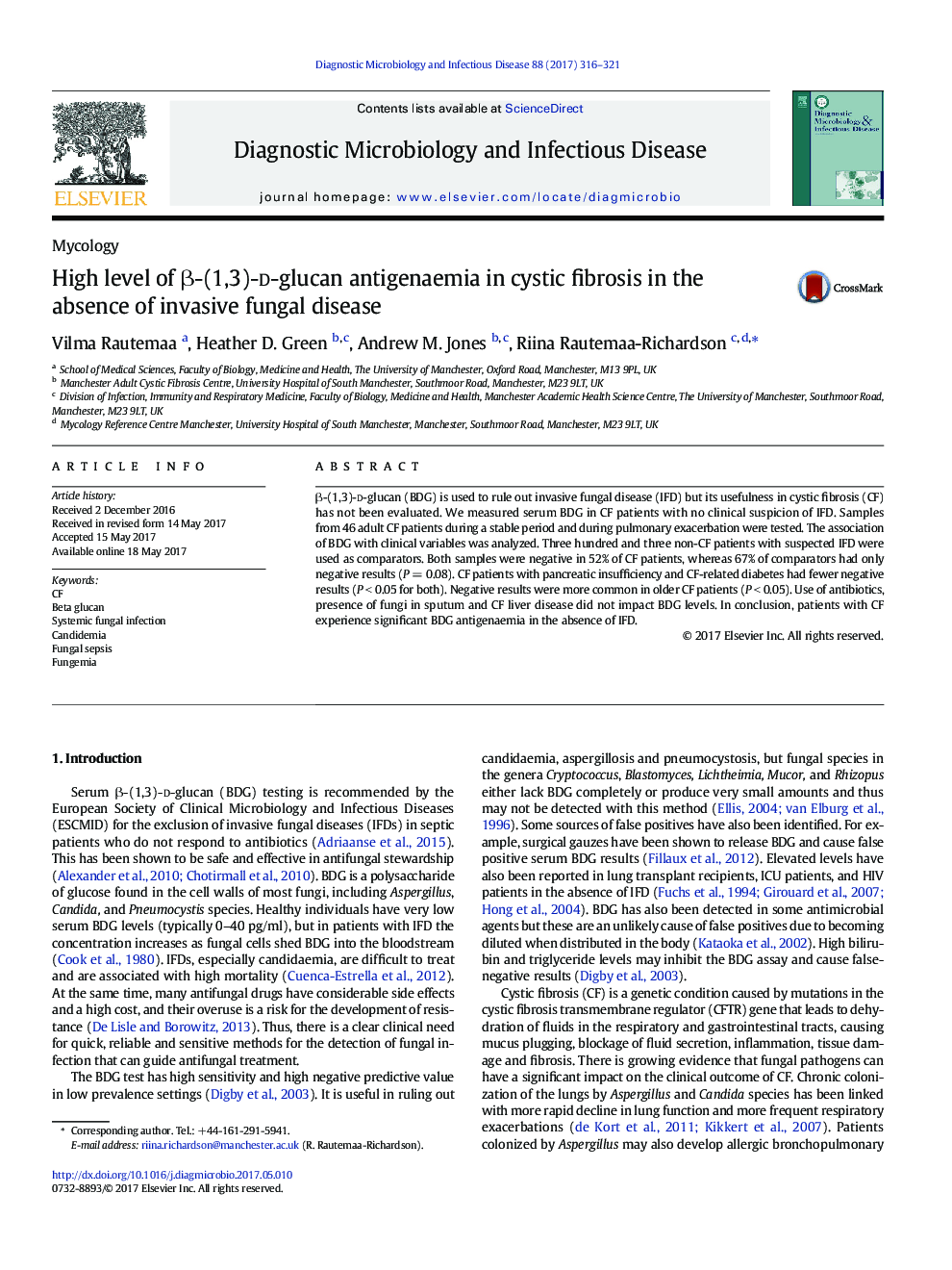| Article ID | Journal | Published Year | Pages | File Type |
|---|---|---|---|---|
| 5665891 | Diagnostic Microbiology and Infectious Disease | 2017 | 6 Pages |
â¢This is the first study to assess the use of the β-(1,3)-d-glucan test in cystic fibrosis patients.â¢Glucan antigenemia is common in CF in the absence of invasive fungal disease.â¢Patients with CF-related diabetes have high serum fungal glucan levels.â¢False-positive fungal glucan levels seen in CF patients.
β-(1,3)-d-glucan (BDG) is used to rule out invasive fungal disease (IFD) but its usefulness in cystic fibrosis (CF) has not been evaluated. We measured serum BDG in CF patients with no clinical suspicion of IFD. Samples from 46 adult CF patients during a stable period and during pulmonary exacerbation were tested. The association of BDG with clinical variables was analyzed. Three hundred and three non-CF patients with suspected IFD were used as comparators. Both samples were negative in 52% of CF patients, whereas 67% of comparators had only negative results (P = 0.08). CF patients with pancreatic insufficiency and CF-related diabetes had fewer negative results (P < 0.05 for both). Negative results were more common in older CF patients (P < 0.05). Use of antibiotics, presence of fungi in sputum and CF liver disease did not impact BDG levels. In conclusion, patients with CF experience significant BDG antigenaemia in the absence of IFD.
